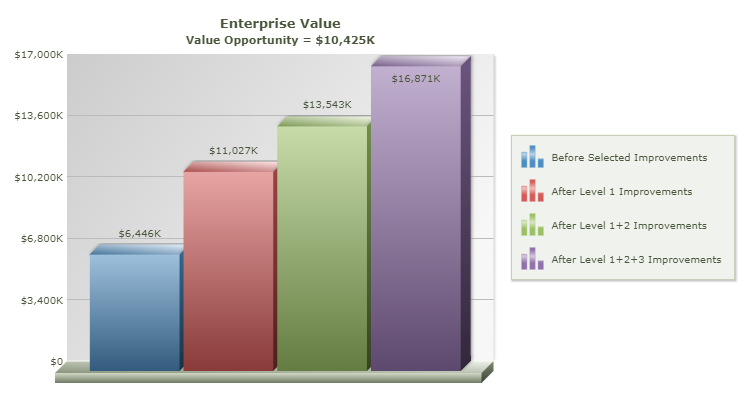The Chief Value Officer: Driving Strategic Growth and Value Creation
5/16/20252 min read


Introduction
As the competitive landscape evolves, businesses face increasing pressure to differentiate themselves and deliver sustainable, long-term value to their stakeholders. In this context, the role of the Chief Value Officer (CVO) has emerged as a critical leadership position, blending the skills of a Chief Financial Officer (CFO) and a Chief Strategy Officer (CSO). The CVO is responsible for systematically creating, assessing, and capturing value across all functions and processes within the organization, aligning business strategy with customer and enterprise value.
Understanding the CVO Role
The CVO is more than just a financial strategist – they are the architect of value within the organization. They lead initiatives that identify, realize, and optimize value, transforming businesses into high-performance, investment-grade entities. The Chief Value Officer is primarily focused on leveraging and enhancing value across the organization. This means fostering a culture that encourages value-driven decision making, innovation, and continuous improvement. By working closely with other executives, the CVO ensures that all departments align with the company's overarching goals of growth and profitability. Key to this role is the ability to analyze data effectively, which allows the CVO to identify trends and areas for optimization. Which is why many are getting credentialed as Certified Value Growth Advisor® (CVGA®).
The CVGA® is the ONLY advanced value acceleration training recommended by the National Association of Certified Valuators and Analysts®, The Exit Planning Institute® , the International Exit Planning Association, and The Alliance of M&A Advisors®.
Key Responsibilities of a CVO
The responsibilities of a CVO are diverse and multifaceted. One of the primary duties is to define value creation strategies that resonate with both shareholders and customers. This often involves establishing key performance indicators (KPIs) tied to value metrics that provide insights into business performance. The inhouse CVO plays a vital role in integrating customer feedback into business processes, ensuring that product development and service delivery are continuously tuned to market needs. Outsourced CVOs act as a catalyst for change, championing the adoption of best practices that foster a culture of innovation. This is increasingly relevant in an era where businesses must adapt quickly to consumer changes and competitive pressures. Moreover, the CVO has the responsibility of engaging with investors, communicating the company's value proposition and growth trajectory effectively.
Value Management Process
Value Discovery: Identifying opportunities for value creation across all functions of the business.
Value Realization: Implementing strategies that capture identified value, turning potential into tangible results.
Value Optimization: Continuously improving processes to maximize long-term value.
Value Communication Management
Articulating the organization’s value proposition to customers, investors, and internal stakeholders.
Developing a shared language of value that aligns all parts of the business around common goals.
Value Customer Management
Maintaining a customer-centric approach by deeply understanding and meeting customer needs.
Enhancing customer lifetime value through strategic pricing, product innovation, and personalized experiences.
Culture and Mindset
Building a culture that prioritizes value creation, encouraging employees to think beyond cost-cutting and focus on delivering superior customer outcomes.
Fostering a mindset of continuous improvement and value innovation.
Ethics and Governance
Promoting ethical value creation that aligns with the company’s mission and broader societal impact.
Supporting governance structures that reinforce transparency, accountability, and long-term stakeholder value.
Sustainability
Integrating environmental, social, and governance (ESG) considerations into the value creation strategy.
Measuring and communicating the impact of sustainability initiatives as part of overall value management.
More Than a New Title
As businesses seek to differentiate themselves and maximize long-term value, the Chief Value Officer has become an essential part of the executive team. By integrating financial discipline, strategic foresight, and a relentless focus on customer value, the CVO can transform organizations into high-performance, investment-grade entities.
For businesses looking to stay competitive and create lasting value, investing in a CVO is not just a strategic advantage, it is becoming a strategic necessity.
Business Master Mechanic a Professional Service by Black Swan Advisors, LLC
Empowering business owners through pure advice & expert guidance.
Buy ⬡ Build ⬡ Grow ⬡ Fix ⬡ Enhance ⬡ Exit
We’re here to support your whole journey as an owner.
(815) 683-3034
Txt, Call, Fax
© 2025. All rights reserved.


